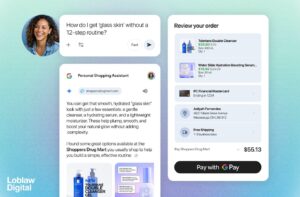Achieving Competitive Supremacy: Leveraging Retail Data Monitoring for Market Advantage
Published: September 26, 2023 | Case Studies & Guides, E-Commerce Strategy, Retail & Commerce, Technology & Tools, Tips & Tricks

In today’s dynamic retail market, businesses must constantly innovate and adapt to stay ahead of their competitors. One powerful tool at their disposal is retail data monitoring – the practice of continuously tracking, analyzing, and leveraging data related to business operations. This article delves into how retail data monitoring can be harnessed to gain a significant competitive advantage in the market.
Understanding Retail Data Monitoring
Retail data monitoring refers to the systematic collection and analysis of data relevant to retail operations. It includes data on sales, customer behavior, inventory levels, market trends, and competitor activities, providing a holistic view of the business and its environment.
The Competitive Edge: Gaining Market Advantage through Retail Data Monitoring
Informed Strategic Decision-Making: Retail data monitoring provides insightful data that can guide key business decisions, helping retailers stay one step ahead of their competitors. By identifying best-selling products or understanding the impact of promotional campaigns, retailers can strategize effectively.
• Enhanced Customer Experience: Insights gleaned from customer behavior data can help retailers tailor their offerings and services to meet customer preferences, thereby enhancing customer satisfaction and loyalty – a key competitive differentiator.
• Efficient Inventory Management: Real-time data monitoring allows retailers to manage their inventory more efficiently, avoiding overstocking or understocking situations. This leads to cost savings and ensures customer demand is consistently met, giving a leg up over competitors.
• Competitor Analysis: Retail data monitoring isn’t just about scrutinizing your own business. It involves tracking competitors’ activities and market trends, providing a clear picture of where you stand and how you can outmaneuver your competition.
• Improved Marketing Efforts: Retail data can inform and optimize marketing strategies, allowing for personalized, targeted campaigns that resonate better with customers, leading to higher conversion rates and boosting market share.
Implementing Retail Data Monitoring: Best Practices
While retail data monitoring is undoubtedly beneficial, businesses must approach it strategically to maximize its potential:
• Define Your Objectives: Identify what you want to achieve through data monitoring. Clear objectives guide your data collection and analysis efforts.
• Choose Suitable Tools: Invest in robust data monitoring tools that can handle the scale of your operations and provide actionable insights.
• Train Your Staff: Ensure your team understands how to use the tools effectively and how to interpret the data insights.
• Actionable Insights: Use the data not just for understanding your current standing but to predict future trends and make proactive, strategic decisions.
Retail data monitoring is an invaluable strategy for gaining a competitive advantage in the retail market. By providing critical insights, improving customer experience, enhancing operational efficiency, and optimizing marketing efforts, it equips retailers with the tools they need to thrive in a competitive landscape. As the retail market continues to evolve, businesses that leverage retail data monitoring will be best positioned to navigate the challenges and seize the opportunities that come their way.
If you’re looking to save staff time, keep a closer eye on your ecommerce presence, and are ready to harness the power of retail data monitoring to help you, contact us today! geekspeak’s retail monitoring experts along with our digital shelf monitoring software, SKUWITY, can help your business run more efficiently while keeping your digital products clean, active, and up to date.







